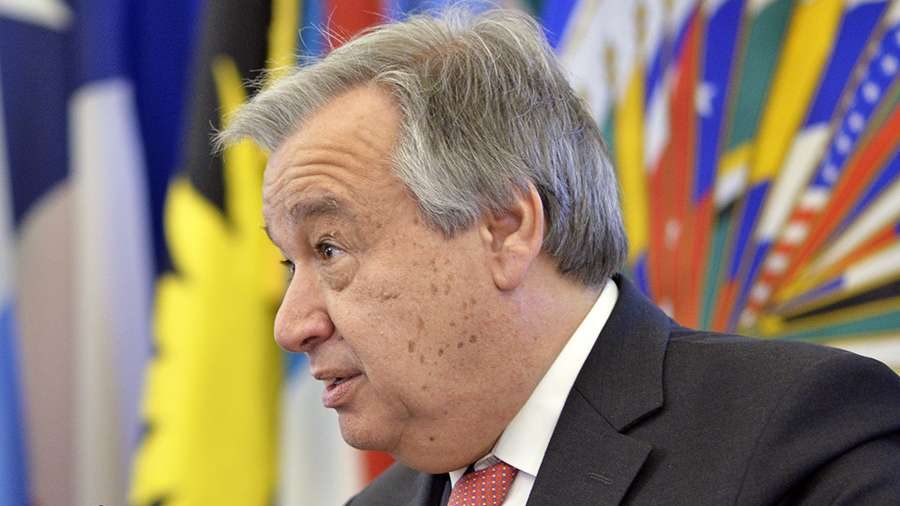U.N. Secretary-General António Guterres said Tuesday that the world needs a response to the coronavirus pandemic based on the protection of human dignity and human rights.
“The pandemic should be a wake-up call,” Guterres said in a May 26 interview with Vatican News. “Deadly global threats require a new unity and solidarity.”
“From the very beginning of this crisis, I have been advocating for solidarity within societies and among countries. Our response must be based on human rights and human dignity,” the UN leader said.
Guterres has led the international organization since 2017. He served as Prime Minister of Portugal from 1995 to 2002 and as U.N. High Commissioner for Refugees from 2005 to 2015.
In December, Guterres, a Catholic, recorded a video message with Pope Francis at the Vatican. The two leaders urged the importance of religious freedom, human dignity, and environmental protection.
At the end of March, the secretary-general called for a global ceasefire so that countries could focus on combating the spread of the novel coronavirus.
He said his ceasefire message was simple: “fighting needs to stop so that we can focus on our shared enemy – COVID-19.”
In his interview, Guterres noted his appreciation of Pope Francis for his support for the global ceasefire appeal and the work of the UN.
“His global engagement, compassion and calls for unity reaffirm the core values that guide our work: to reduce human suffering and promote human dignity,” he said.
Guterres explained that 115 governments and more than 200 civil society groups have endorsed the appeal, and 16 armed groups have pledged to end violence, but “mistrust remains high, and it is difficult to turn these commitments into actions that make a difference in the lives of those impacted by conflict.”
The organization Doctors Without Borders (MSF) said last week that Yemen, in the midst of a civil war, is also on the brink of a coronavirus “catastrophe.”
“What we are seeing in our treatment centre is just the tip of the iceberg in terms of the number of people infected and dying in [Aden],” according to Caroline Seguin, MSF’s operations manager for Yemen.
“The United Nations and donor states need to do more and do it urgently, not just for Aden but for the whole of Yemen,” Seguin said.
The secretary-general said he was also concerned about “peace in the home.”
“Across the globe, as the pandemic spreads, we are also witnessing an alarming increase in violence against women and girls,” he pointed out.
Guterres said he had launched an appeal to mobilize better protection for women and asked religious leaders “to unequivocally condemn all acts of violence against women and girls and to uphold the bedrock principles of equality.”
The coronavirus pandemic is also exposing inequalities everywhere, he underlined, including economic disparity and unequal access to health care.
“Poverty could rise by 500 million people -- the first increase in three decades,” he stated, adding that this is why he is advocating for a global relief package amounting to at least 10% of the global economy.
Guterres also said that it is important that any COVID-19 treatments found or developed -- including a vaccine -- be safe and available to everyone.
“In an interconnected world, none of us is safe until all of us are safe,” he said. “This vaccine needs to be the people’s vaccine.”
In the interview, the secretary general also said religious leaders have a “crucial role to play” during the pandemic in promoting mutual respect within their communities.
“They are well-positioned to challenge inaccurate and harmful messages, and encourage all communities to promote non-violence and reject xenophobia, racism and all forms of intolerance,” he said.
Religious leaders can leverage their networks “to support governments in promoting public health measures recommended by the World Health Organization,” he said, and “to dispel false information and rumors.”

